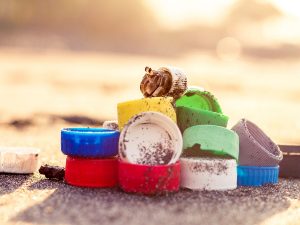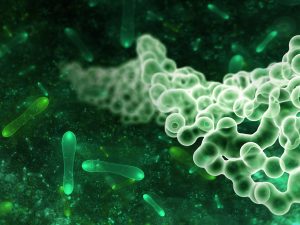
Waste textiles from sailing boats could be given a new lease of life thanks to a research project to turn plastic fibres from sails into chemicals such as vanillin – the compound used in cosmetics and food products for a vanilla flavour and smell.
Around 2,000 tonnes of polyethene terephthalate (PET) sails used by the marine sector worldwide are decommissioned or damaged beyond repair every year, with the majority either remaining in storage or sent to landfill sites to decompose.
Sustainable Sailing – a startup established by two brothers with backgrounds in both sailing and chemistry – is aiming to find alternative ways to process this type of waste.
A research collaboration between the company and the Sadler Lab, based at the University of Edinburgh’s School of Biological Sciences, recently received funding through Innovate UK’s bio-based manufacturing Launchpad competition for Scotland and is also supported by the Industrial Biotechnology Innovation Centre (IBioIC) and Edinburgh Innovations.
Drawing on the engineered biology and green chemistry expertise of Dr Joanna Sadler’s group, the team has identified an opportunity to use the waste sails as a raw material for high-value chemical compounds traditionally derived from petrochemicals.
Sails are manufactured using hard-wearing synthetic textiles to withstand harsh ocean environments and extreme weather conditions, but even then can need replacing every five years. Moreover, professional racing teams go through several sails per event and there are currently limited options for recycling these technical-grade materials.
Following previous research that proved the feasibility of turning single-use PET drink bottles into vanillin using engineered E. coli bacteria as a catalyst, the same process is being applied to assess the viability of recycling sailing waste for similar chemicals.
Dr Joanna Sadler, Chancellor’s Fellow in Biotechnology and founder of the Sadler lab, University of Edinburgh, said:
We’re delighted to be part of this collaboration which draws upon our expertise to test the viability of using a biological system to upcycle plastic fibres from sails into high-value chemicals. The results from our research have already had major implications for the field of plastic sustainability and demonstrates the power of engineering biology to address real-world challenges. ”
Dr Joe Penhaul Smith, founding director of Sustainable Sailing, said:
Some decommissioned sails are turned into one-off clothing pieces or bags, but there’s no large-scale solution to tackle the waste material. This project aims to find a new circular recycling process where sailcloth can be broken down and repurposed into useful chemical compounds. The added benefit is that these types of compounds are traditionally manufactured from petrochemicals, so marine waste could become an alternative, more sustainable feedstock.
The next stage of the process is to take it to a much larger scale, as well as working out the supply and demand dynamics to see whether it would be viable to have everyday chemicals manufactured in this way. There is also potential to extract different chemical building blocks for other industrial uses, and we could see additional types of technical textiles being recycled in this way in future. ”
Companies interested in this technology can contact john.morrow@ei.ed.ac.uk


